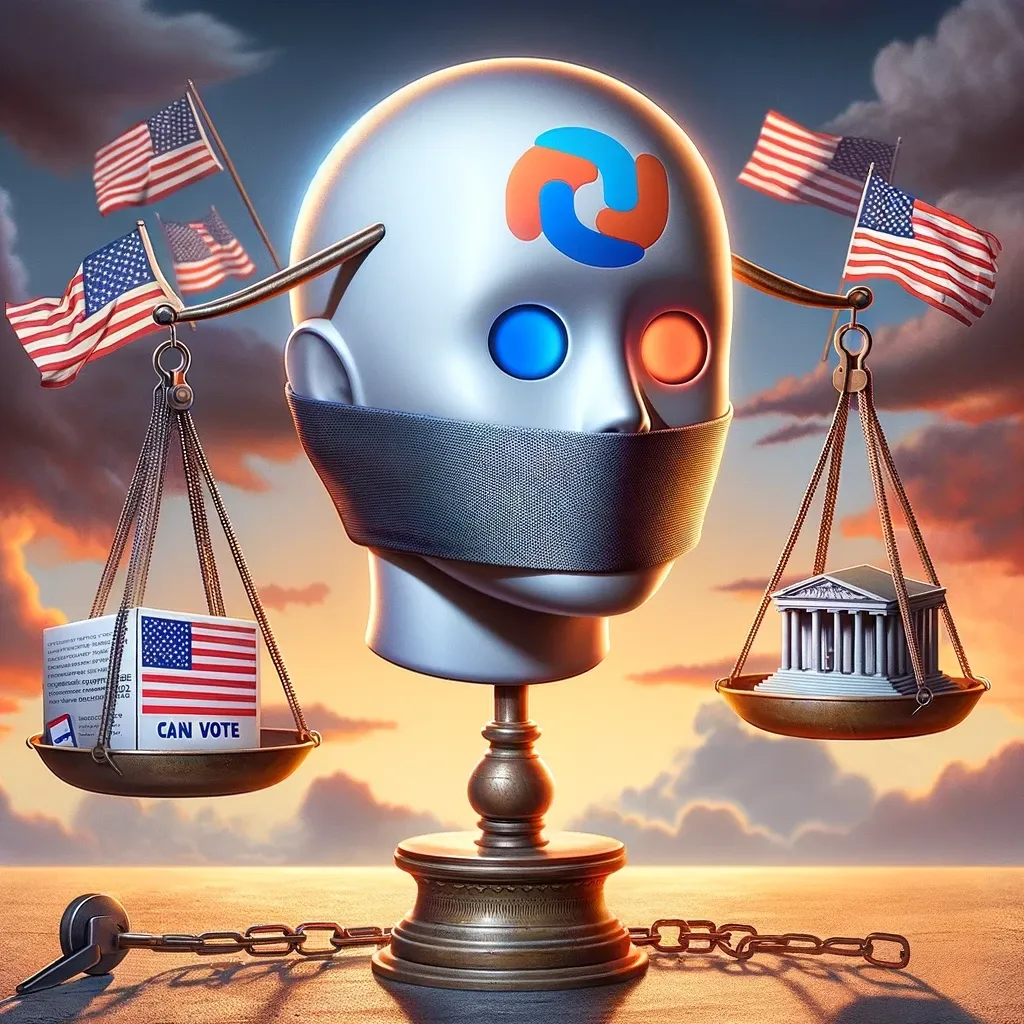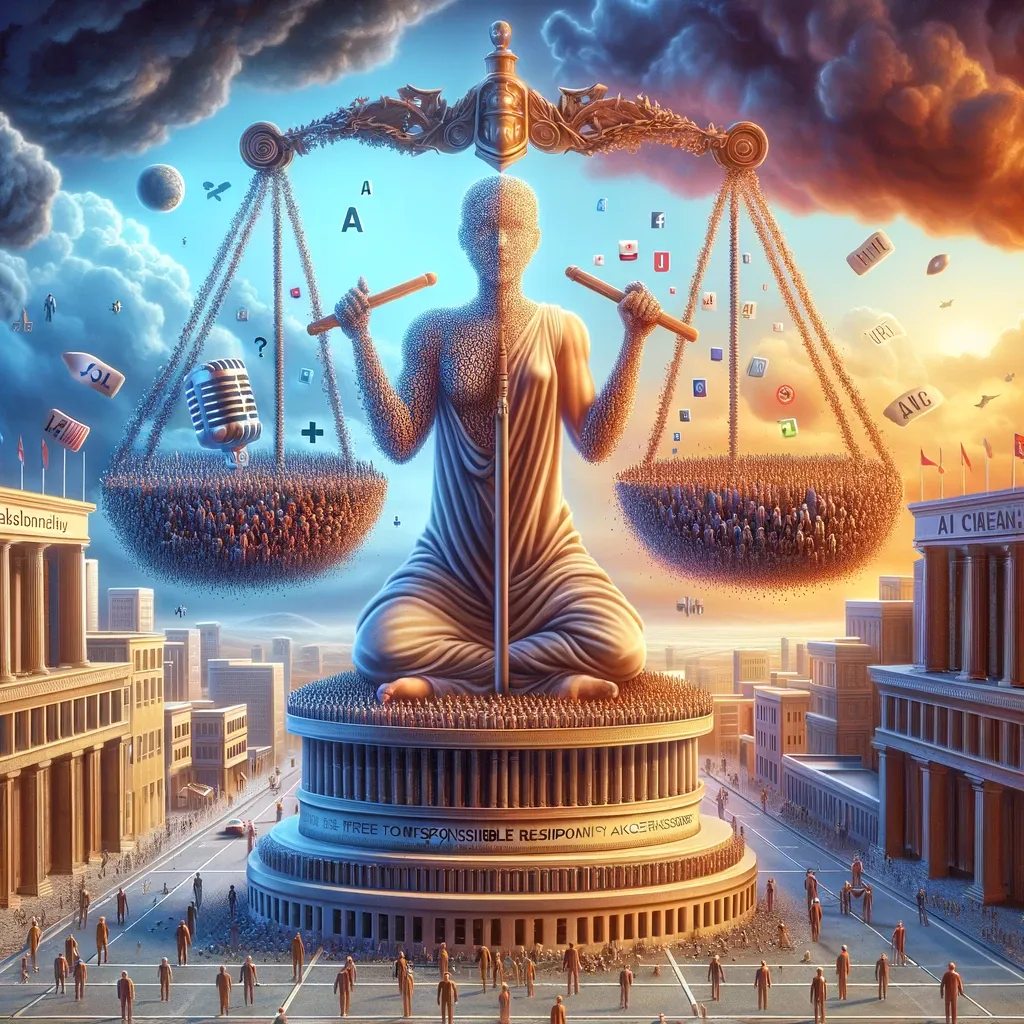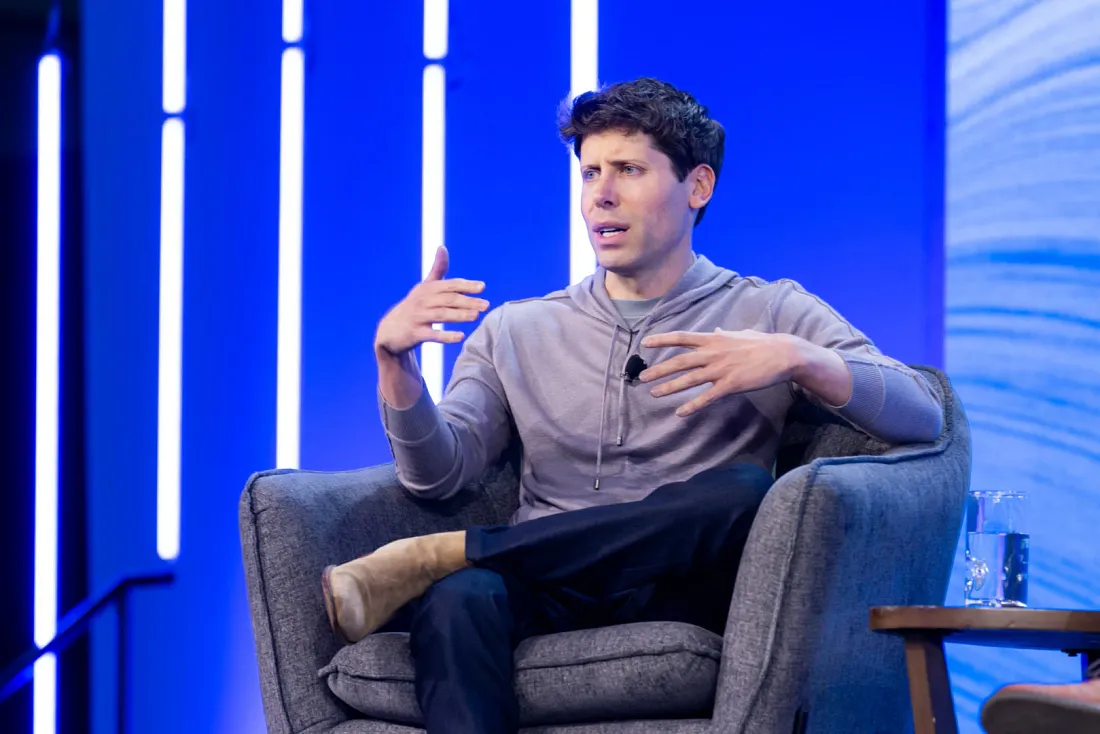This is a huge topic.
One that is growing and fiery in many ways.
Censorship is touchy.
Whether generative AI tools should be censoring and how much, is even touchier.
Throw in election and politics, and you get anarchy.
In a world where information spreads faster than wildfire, OpenAI’s recent move to clamp down on ChatGPT’s chatter about US elections is as intriguing as it is controversial.
Imagine asking your go-to AI buddy about the latest election updates, only to be met with a digital redirection to CanIVote.org.
It’s like asking a librarian for a book and being told to go check the board outside instead.

GenAI is afraid of giving you answers to certain topics now!
Now, why this sudden hush-hush policy on elections?
OpenAI, in its latest act of digital puppetry, has integrated a “guardian_tool” function in ChatGPT.
This function is like a virtual muzzle that snaps shut whenever talk veers towards the sensitive turf of US elections.
It’s a proactive move to avoid the AI spreading misinformation, especially with the 2024 US elections looming.
I can appreciate the concept and why they do that.
But should they do it?
Is there a better way to solve the problem?
This tool can be tweaked to cover other touchy topics too.
It’s like having a Swiss Army knife for content moderation, where OpenAI can pull out whatever tool it deems necessary, whenever it’s necessary.
Why should you care, though?
Well, for starters, in a year where half the world is gearing up for elections, having a popular AI platform like ChatGPT play it safe is a big deal.
It’s like your most knowledgeable friend suddenly deciding to stay mum on politics — safe, but maybe a bit too silent for comfort.

What if we really want facts and the latest info for certain topic to inform our decisions?
This move by OpenAI could be seen as a responsible use of AI, given that hallucinations (fancy AI-speak for errors) are still a thing in systems like ChatGPT.
Redirecting users to a human-verified resource seems like a wise move in an era where digital misinformation can swing elections.
However, there’s a flip side to this coin.
This approach raises questions about the role of AI in public discourse.

Should touchy topics like elections be censored?
Or should AI be allowed to engage in these crucial conversations, albeit with a disclaimer about potential inaccuracies?
OpenAI’s technique for content moderation, which uses GPT-4, is a significant stride in managing the ever-growing digital chaos.
It’s like having a super-efficient, AI-powered bouncer at the door of the internet’s biggest party — the social media platform.
This process reportedly cuts down the time to roll out new content moderation policies to mere hours.
But, skepticism remains.

AI-driven moderation tools aren’t new, but their track record is spotty.
Studies have shown that these tools can be biased against certain groups, like people with disabilities or certain racial communities.
It’s like having a referee who unintentionally favors one team over the other.
So, has OpenAI cracked the code to unbiased, efficient content moderation?
Probably not yet.
It will continue to evolve.

For your info, some baseline censorship is a must for any tools, AI or not.
Imagine trying to use AI to assemble a bomb, create a child porn site or devise phishing mechanisms.
We simply cannot make it that easy for bad actors.
The company itself admits that AI judgments can be skewed due to biases in training data.
It’s like training a guard dog that barks at mailmen because it’s only seen them in villainous roles in movies.
It’s crucial to remember that AI, no matter how advanced, is not infallible.

The intersection of AI and content moderation is a tightrope walk between responsibility and censorship, innovation and restraint.
OpenAI’s move with ChatGPT could be seen as a step towards responsible AI usage, but it’s not without its challenges and ethical dilemmas.
Are we ready to sacrifice the voice of AI, or can we ever effectively teach it to speak responsibly?
-
Should GenAI tools have censorship?
-
#ChatGPT #ElectionModeration #OpenAI #DigitalEthics #AIModeration #TechSkepticism #AIResponsibility #Election2024 #Misinformation #TechInnovation #ContentCensorship #AIChallenges #DigitalInformation #TechDebate #ElectionDiscourse




评论 (0)